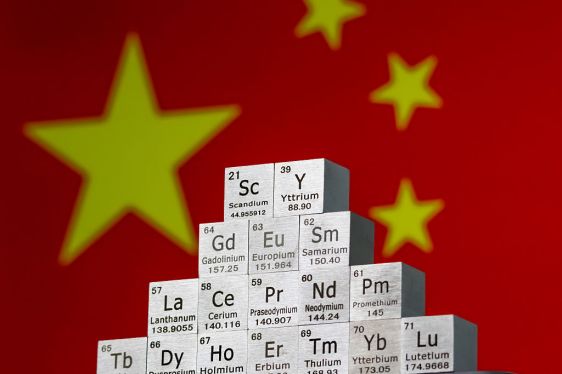In the intensifying race to develop faster semiconductors, China has again increased export controls on rare-earth minerals and the associated mining and refining technology. The country’s Commerce Ministry announced it has added five rare-earth elements to its export control list, bringing the total to twelve, with the stated goal of safeguarding national security.
The ministry introduced a new export license requirement. Foreign producers must now apply for a license if they plan to export products that contain even small amounts of Chinese-origin rare-earth minerals or if they use Chinese technology to mine them. According to the announcement, defense organizations will not be granted these export licenses. Companies intending to use the minerals for semiconductor manufacturing will have their licenses reviewed on an individual basis. However, exports intended for humanitarian aid, including public health emergencies and disaster relief, will be exempt from the license requirement.
As the world’s largest producer of rare-earth minerals, China has frequently leveraged its dominant position in negotiations with other countries. This move is seen as a response to recent threats from the United States to expand the scope of restricted chipmaking equipment and chips that can be exported to China. Rare-earth minerals are critical components in a wide range of industries, from solar panels and electric vehicle batteries to semiconductor manufacturing and aerospace.
China’s new restrictions mirror the United States’ own Foreign Direct Product rule, which the Biden administration expanded last year in an effort to limit the export of chipmaking equipment to China from foreign nations. This latest announcement follows a previous action in April, when Beijing added several rare-earth minerals to its control list in retaliation for tariffs imposed by the Trump administration, an action that sparked a significant global shortage.

